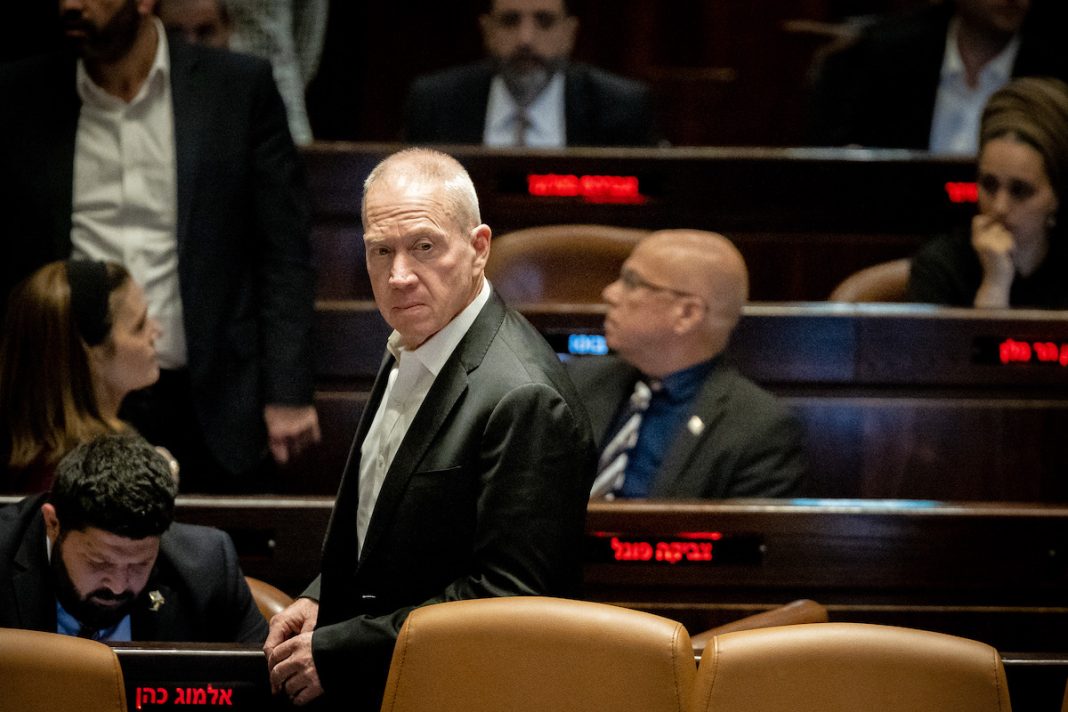“Iran is waging a multi-front war of attrition against [Israel],” Yoav Gallant said in an event on Sunday.
He claimed that Tehran was “continuing its attempts to establish itself on the northern front and at the same time sending its proxies” to the West Bank and the Gaza Strip.
The minister added the Israeli military has “acted and will continue to act in all arenas, in overt and covert operations along the border, across the border, and even far from the border.”
His remarks come as the Jerusalem Institute for Strategic Studies (JISS) think tank warned of a war with Iran in a statement published on Sunday.
The JISS also called on Netanyahu to suspend his judicial reforms that have sparked tensions in the occupied territories.
“Israel is seen from the outside as a torn society, gradually losing its ability to function,” the think tank said in a statement that echoed the remarks of one of its fellows, former Maj.-Gen. Yaakov Amidror, last week.
“Israel’s enemies are gaining confidence and expect the internal conditions in the Jewish state to lead to self-destruction,” JISS added.
According to the statement, that comes as the US is reducing its involvement in West Asia and Iran is restoring its ties with Saudi Arabia.
On March 10, after several days of intensive negotiations hosted by China, Iran and Saudi Arabia agreed to resume their diplomatic relations and reopen their embassies and diplomatic missions after seven years of estrangement.
In a joint statement after signing the agreement, Tehran and Riyadh highlighted the need to respect each others’ national sovereignty and refrain from interfering in the internal affairs of one another.
They agreed to implement a security cooperation agreement signed in April 2001 and another accord reached in May 1998 to boost economic, commercial, investment, technical, scientific, cultural, sports, and youth affairs cooperation.
“The chances of a deterioration into a wider conflict are more significant today than before,” the think tank said, adding that “Israel needs to prepare for the tangible possibility of war.”
Mass protests gripped the apartheid regime after Netanyahu announced his proposed judicial reforms in January.
The Israeli premier had claimed that the so-called judicial reform plan would stop the courts from over-reaching their powers, but critics said they would help him bypass some rules as he faces an ongoing trial for corruption.
Late in March, Netanyahu announced that he was temporarily freezing the bill that would alter the makeup of Israel’s judicial system. He said he was determined to pass the judicial reform plan.
The struggle over the plan illustrates the deep divide in Israeli society between supporters of the incumbent right-wing administration, who says the judicial changes are necessary, and the growing number of people opposed to Netanyahu’s plan, who argue that the moves will weaken the independence of the judiciary.
